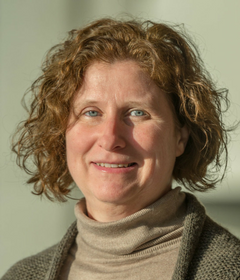Mobile connectivity: How will the ‘edge’ look like in 2027
[See yourself in 2027...]
With 5G on the verge of delivering mobile broadband connectivity for all, the impact of heterogeneity in terms of Radio Access Networks (heterogeneous radio edge) but also in terms of distributed intelligence (from Cloud-RAN to localized cloud to fog) starts to be felt. This heterogeneity, which extends also to ownership and licencing regimes, translates into flexibility but also complex business models with literally myriads of players holding more or less control over their piece of the pie, but little to no direct control of the delivery mechanisms. How to make this ecosystem successful, not forgetting the growing importance of the sharing economy, empowering experimentation whilst still guaranteeing Quality of Experience, remains a challenge.
This session brings together experts in connectivity with experts in sharing economy and open-ended business models.
With 5G on the verge of delivering mobile broadband connectivity for all, the impact of heterogeneity in terms of Radio Access Networks (heterogeneous radio edge) but also in terms of distributed intelligence (from Cloud-RAN to localized cloud to fog) starts to be felt. This heterogeneity, which extends also to ownership and licencing regimes, translates into flexibility but also complex business models with literally myriads of players holding more or less control over their piece of the pie, but little to no direct control of the delivery mechanisms. How to make this ecosystem successful, not forgetting the growing importance of the sharing economy, empowering experimentation whilst still guaranteeing Quality of Experience, remains a challenge.
This session brings together experts in connectivity with experts in sharing economy and open-ended business models.
Detailed Workshop Outline
15:30
Introduction - Mobile connectivity: How will the ‘edge’ look like in 2027
DG CONNECT, Directorate E - Jorge Pereira, Unit E1 - Future Connectivity Systems
15:40
Panel presentations
• The power of unlicensed - Frank Fitzek, TU Dresden, DE
• mmWaves and up: beyond nomadic - Ingrid Moerman, imec & Sofie Pollin, KU Leuven, BE
• The power of locality (From Cloud to Fog) - Luiz daSilva, TCD, IE
• The networked vehicle - Antonio Fuganti, Fiat Chrysler Automobiles, IT
• The edge economy - Linda Doyle, TCD, IE
16:40
Open Discussion
Introduction - Mobile connectivity: How will the ‘edge’ look like in 2027
DG CONNECT, Directorate E - Jorge Pereira, Unit E1 - Future Connectivity Systems
15:40
Panel presentations
• The power of unlicensed - Frank Fitzek, TU Dresden, DE
• mmWaves and up: beyond nomadic - Ingrid Moerman, imec & Sofie Pollin, KU Leuven, BE
• The power of locality (From Cloud to Fog) - Luiz daSilva, TCD, IE
• The networked vehicle - Antonio Fuganti, Fiat Chrysler Automobiles, IT
• The edge economy - Linda Doyle, TCD, IE
16:40
Open Discussion







